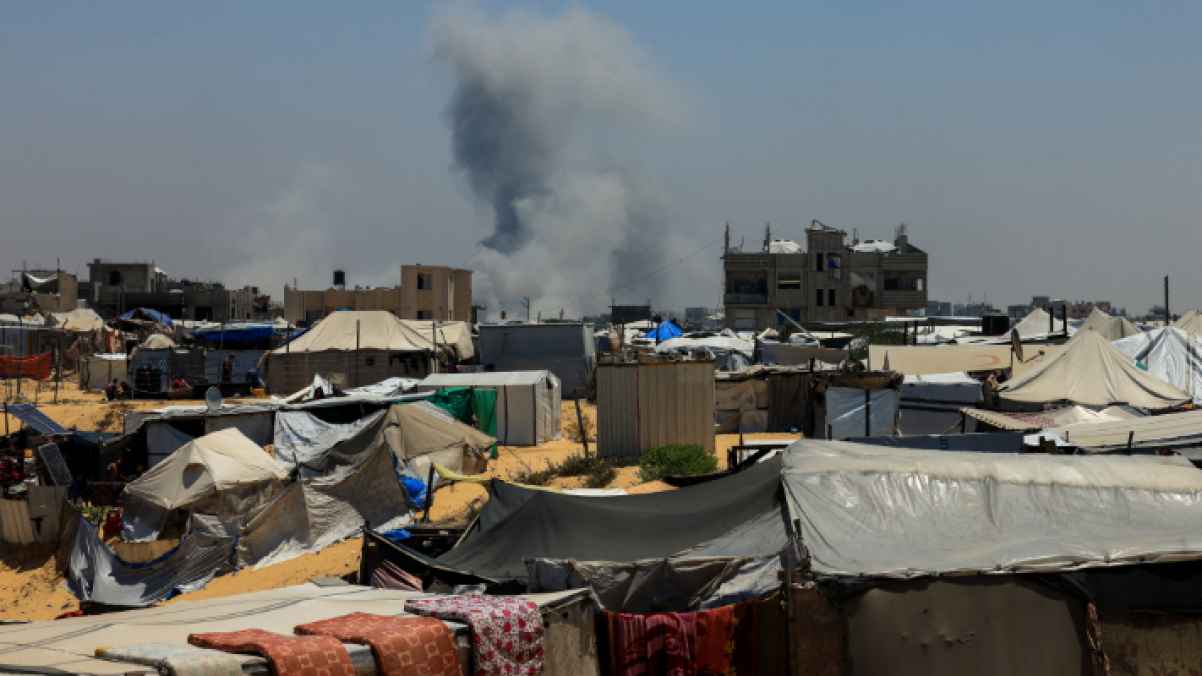Gaza... the heart that beats within a burning body

Smoke rises like the scorched breath of the earth, writhing in the hot air like the souls of martyrs. It billows from the tents of the displaced, passing over the heads of mothers who have lost everything except their tears.
In Rafah, in the southern Gaza Strip, the smoke is not just a gray cloud—it is a witness to what remains of life, slipping into the lungs of children before they even learn how to spell the word "peace."
There, in that faceless place, people do not wait for morning, for every dawn brings a new promise of death. The shelters—so-called—are nothing but torn fabrics, offering no protection from a missile or a shard of shrapnel. Between one trail of smoke and the next, scenes of anguish unfold: a child clutches a burned doll, a mother searches through the rubble for her son’s corpse, and an old man stares at the sky as if it were his final exile.
To the rhythm of shattered pain behind a faded past, there is no time here for profound sorrow—for sorrow is a luxury not afforded to those who run every hour just to survive. The past is only a gray ghost, stuck in memory like a bullet that never exploded. Nothing returns as it was: not the homes, not the schools, not the faces that left without farewell. Gaza has become a broken mirror, reflecting nothing but fragments—its scattered glass carrying the features of a generation born beneath the rubble.
A Boundless Humanitarian Catastrophe
In Gaza, the electricity is gone, the water is cut off, and breath is choked by the loss of internet and sound. Hospitals, once strongholds against death, have turned into temporary graves for the wounded—without medicine or equipment. Doctors work by the light of mobile phones, and the cries of children blend with the roar of aircraft overhead.
Famine creeps across emaciated bodies, and bread becomes a distant dream—sometimes bought at the price of life itself. More than a million displaced people wander between pain and the unknown, waiting for a relief truck that may never arrive—or a temporary truce that may never come.
The suffering Strip does not merely weep—it screams with what breath it has left. The smoke rising from the shelters is not just the burning of place, but the suffocation of human conscience. And yet, despite the destruction, Gaza still pulses with life. Among the ruins, the most powerful words are being written: We remain... despite everything.
